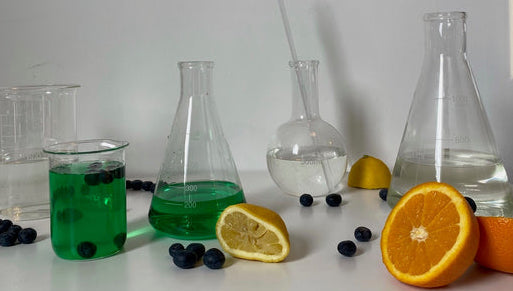LAB EDUCATION
Too much sun exposure can lead to sunburning which accelerates skin aging and increases the risk of various types of skin cancer. But how does radiation from the sun affect our skin on a daily basis?
There are a lot of ways to nurture your skin. We’re going to provide general guidance for layering products to achieve the most out of their active ingredients and avoid pilling and antagonistic effects.
Meditation can be traced back to the Vedic texts of ancient India, where they believe the physical body is controlled by a connection to the inner self. Regardless of which type of meditation, you can reap the health benefits of this practice.
It has become increasingly clear that our microbiome is a critical part of our health. From metabolism to sleep and brain function, the bacteria and other microorganisms that constitute our microbiome help maintain homeostasis.
Our skin is our largest external organ and it endures quite a lot. Whether it be UV damage, viruses/microorganisms, or physical abrasions, our skin is the first line of defense of our immune system.
Do you ever read the back of your favorite moisturizer? Odds are there are some words you have never heard of before or can easily pronounce. In a world of confusing ingredients, we are here to clarify cosmetic labelling.
There are many well-known interventions for achieving better skin like choosing clean skin care, eating a diet rich in micronutrients, and staying hydrated. However, there is one factor that is commonly overlooked: high quality sleep.
Fragrance is a vague term included in many skin care ingredient lists but what does it mean and why should we be concerned? Let’s unpack some of the common “fragrance” molecules and learn how to better navigate ingredient lists.
The physiology of skin is just as complex as the other organs in our body, perhaps even more so as it is constantly challenged by external stressors and must maintain the skin barrier against these stressors.
In the skin care community, the word antioxidant gets thrown around a lot. Why does it seem like every otheractive ingredient is an antioxidant? Is there a difference inhow they combat oxidative damage?
Your skin has two major layers: the outer layer- the epidermis- and an inner layer- the dermis. The technical term for the skin barrier is the stratum corneum and it is the outermost sublayer of the epidermis.
Parabens are synthetic compounds that act as preservativeswithin cosmetic products, medicines and food products. Recently, parabens have received scrutiny for their ability to act as hormone disruptors.











